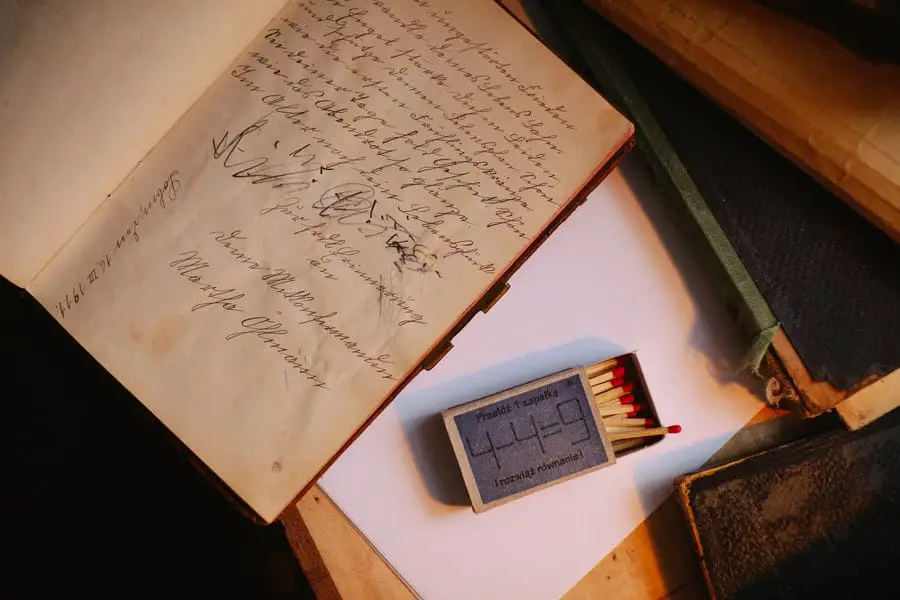As a game design instructor, I have the responsibility of sharing my own experiences with students. I try to be honest with them. Jobs aren’t easy to come by. It’s work in itself to land a job. There are certainly some obstacles to overcome if you have no prior experience in the game design industry.
So, how hard is it to find a job in game design? Game design jobs are hard to find because they most frequently require experience, an extensive portfolio, and a large skill base for entry level jobs.
Although it can be difficult to find a job in game design, it is not impossible. There are companies hiring, the video game industry is doing quite well, and there is no sign of it slowing down anytime soon. We will look into some of the obstacles you may need to overcome. What you will read below are some hard truths that I have learned over the years about game design jobs.

The Problems With Finding a Job in Game Design
Limited Number of Game Design Companies
Here in Oklahoma, we have very few companies to choose from in game development. We have roughly two or three small companies. From there, we have a lot of freelancers and several have started up their own indie teams. However, they are generally not paid positions when working with them, and often times it’s a part time gig for most of those working in Oklahoma.
The closest location for game development near to us is Austin. There are several companies located in that area with some of the larger AAA work being done in that area. For this reason, I just haven’t seen the growth that I would hope to see in the Oklahoma region.
We are currently in the process of trying to foster the community and hopefully build up some the smaller studios. We have been fortunate enough to have meet up groups in our area to help support those wanting to get in the industry, but again, they aren’t typically hiring others. They are just trying to make things work for themselves. This is understandable.
Game Design is Becoming Saturated
It’s not so much that we have an abudance of people with a high level of skill, which I will talk about below, but rather we have a lot of people that simply want to be in this industry. Oklahoma has a lot of computer science majors coming out of college with the goal of becoming game developers. They have a lot of other types of job opportunities available to them, but they will often jump on game development opportunities when they come around.
My own program sends out roughly 30 game developers yearly. The vast majority would love to be in this industry. I have been fortunate to have some of my most talented students land jobs successfully, but many are in the 3D Design industry in other areas, not necessarily game design.
Game Design Requires a High Level of Skill
I mentioned above that my most talented students have been successful in finding jobs. It’s the students that come to class eager to dive right in to Blender, Substance Painter, or Unity. They eat, breathe, and sleep game design. Students who have moved to full time employment generally have extensive amounts of work they have completed outside of class time.
The students that simply come to class every day, get the work done, does what’s expected of them but never do any extra are the ones that leave wishing they knew more and feeling that there is potentially a skill gap in what they know versus what they need to know to land a job.
In addition, I have found that most game design jobs simply do not have the budget to employ anyone without talent. It’s something that you have to be brutally honest about. Mediocre concept art and mediocre 3D assets is hard to overcome. There are so many talented artists out there. Without a unique spin or art that can stand out in a crowd it’s very difficult to find a job in game design.
What are game design employers looking for in employees?
Soft Skills
Anytime I speak with employers, the number one thing that they mention for employability is soft skills. For game development, this means dependability, meeting deadlines, and good communication skills.
First, dependability is absolutely crucial when it comes to working remotely. If you plan to work with a small group, more than likely your best bet will be to find people who want to work with you remotely on a project or join a small group who already have a project established. If this is the case, be prepared to dedicate the necessary time to getting the project done and contributing. Otherwise, it simply won’t work.
Secondly, meeting deadlines is simply part of game design projects. Large projects require a lot of goal planning and working towards small goals to build up something bigger. Be prepared to estimate time required to finish specific tasks and then work towards meeting those deadlines routinely. This will immediately help people perceive you as dedicated and contributing. It’s best to be honest about what you can get done than overcommit and underperform on what others expect of you.
Lastly, communication skills are extremely important in virtual work. Virtual workers have limited interaction with one another. Getting your ideas across quickly is important. In entry level game design jobs, it may simply be about explaining problems you are facing quickly.
Here is a video about soft skills if you are a bit unfamiliar with the term.
Dedication to Your Craft
If I am starting a game design company, I want the guy that works on his craft all the time. I would rather have that guy than the guy that may be slightly better initially but never wants to do any extra to improve. The guy that puts in work outside of work hours simply to get better at what he does is going to be extremely valuable later on.
Often times, this dedication will show through in your interview, but at times it may simply be about the numerous sketch books you have, the handful of game jams you have participated in, or the game ideas you have jotted down on paper.

Portfolio
Almost linked with dedication, you should have a thorough portfolio of work. I mention this separately because it can be accomplished separately. If you don’t have the countless hours invested, then take a couple of weeks and in the evenings put a handful of really nice pieces of work together. Show what you can do.
If you are an artist, I would recommend that you check out Artstation. A lot of great artists hang out there, it’s great for the game design community. It may also get your work noticed. If you are really talented, others may reach out to you. This is especially the case if you show off a specific style of art. This isn’t to say that you should pigeon-hole yourself to one style. If you consider yourself well-rounded, showcase that too. My suggestion though is to only show your best work. Be critical of what you put up and perhaps ask others for feedback. If you need an example, check out Declin Lozano’s work on Artstation, he is a former student of mine.
Experience
There is no substitute for experience. I can assure you that the quickest way to gain a fellow game designers respect is to release a project. It doesn’t have to be anything spectacular, but I have seen game designers turn their nose up at anyone who claims to be a game designer who hasn’t released anything.
If you feel this may take up too much of your time, I wrote an article on what you should build for your first game. It may be a great way to not only build portfolio pieces but work towards gaining crucial experience. Keep the project scope small, limit your time investment, and go through the entire pipeline. You may be surprised where you end up.
Can you find a job in game design without a degree?
If you are considering a degree, I would look very hard at what connections the university may have with real game design studios. Game design degrees do have quite a few people going through them. In Oklahoma, there are only about two colleges that I would consider being worthwhile for game design specific degrees.
Outside of that, I have always steered my students who want to pursue college to go for something that will open up other opportunities. As an example, if they love programming, I would encourage them to look into computer science degrees. A lot job opportunities will come from that degree and it may or may not take you into game design, but the degree is respected among game programmers. Some jobs that may require a degree would certainly consider students for any development position.
If students wish to go the more artistic route, then portfolio is king. I would likely not pursue any form of art degree. Your work will speak volumes within the industry. If you lack the talent, it may help you some, but not much. Any improvement will come because of the practice they will force you to put in and some general guidelines you can follow. However, my experience has simply been that you either “have it” or “you don’t”.
I hate to be harsh, but I would never recommend someone to pursue college if their work is subpar. My guess is that the person either doesn’t practice enough (keep in mind I believe it’s something you have to eat, breathe, and sleep), or it’s just not a talent the person has.
This doesn’t mean that the student should not continue to pursue the game design industry. There are so many disciplines outside of art that are relevant to the industry. If you are a great communicator, potentially story writing or marketing would be great avenues. Marketing is often overlooked, but a game not well marketing is never going to work well commercially. I have written an article on game marketing, it will be helpful if you’re not sure what role you want to play in game design. There will be great demand for video game marketers moving forward.
What are the entry level requirements for game design jobs?
Know Your Software
Regardless of what pipeline you enjoy, I would highly recommend that you simply practice your technical skills with software. If you are in the 3D Design industry, the few that I would recommend currently are Blender, Substance Painter, and Unity. I would then turn around and master that pipeline.
What I mean by this is that if you choose Blender as your 3D modeling application of choice, be able to model a wide variety of objects and in different styles. Be comfortable with some of the sculpting functionality as well as hard surface modeling.
From there, you should be able to get models into Substance Painter and be familiar with manipulating textures, using alphas to get the results you want, and using a high to low poly baking technique. Then, get your models into Unity and know how to get them into a scene, apply textures to them, and work on lighting to make the models look just as good there as they do in Substance Painter.
If you are unfamiliar with the terms mentioned in the paragraph above, dive in to software, watch tutorials, practice, and the terminology will follow.
Demonstrate Your Ability
As mentioned previously, your portfolio is really important if you are looking for a job in game design. Before people will take you seriously, they have to see your work.
Unfortunately, too many that want to be called game designers but lack skill to back that up. Very few people are simply an “idea guy”. It’s those that can take an idea and make it reality that make the money in this industry. Your ability could be spread out or you may only have one discipline, but this is better than no discipline or trade at all.
Develop a portfolio, even if it’s just a few pieces of your best work, this is a far better approach to landing a job than having nothing to show at all. An idea will not translate to a job in game design.
Conclusion
Game design jobs are not easy to come by, particularly in some parts of the United States. We are fortunate to live in a world where remote working is becoming more prevalent. You likely can find people to work with on a project if you seek them out. However, if you want people to take you seriously, or wish to join an existing studio, there are going to be some expectations. These are things you can work towards, but it will take a high level of dedication and effort.
If you have a portfolio and wish for me to review it or provide any feedback, I would be honored. Please reach out to me!
